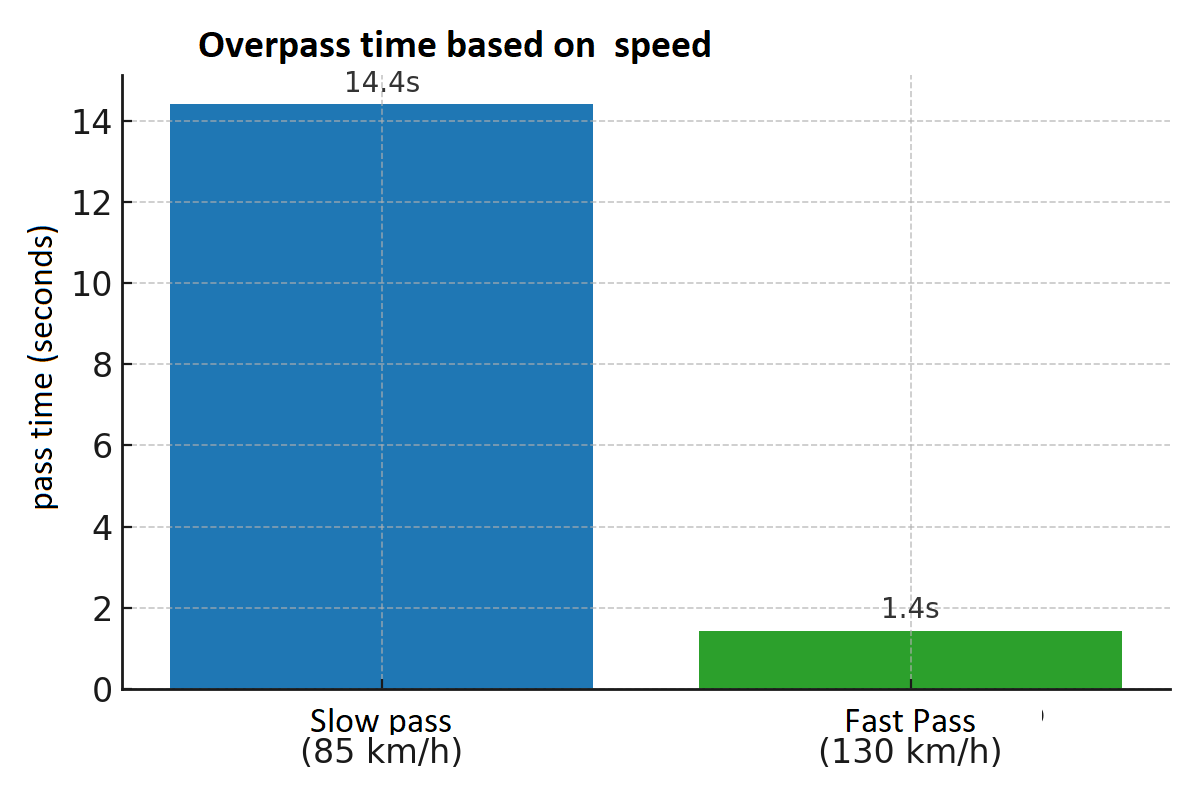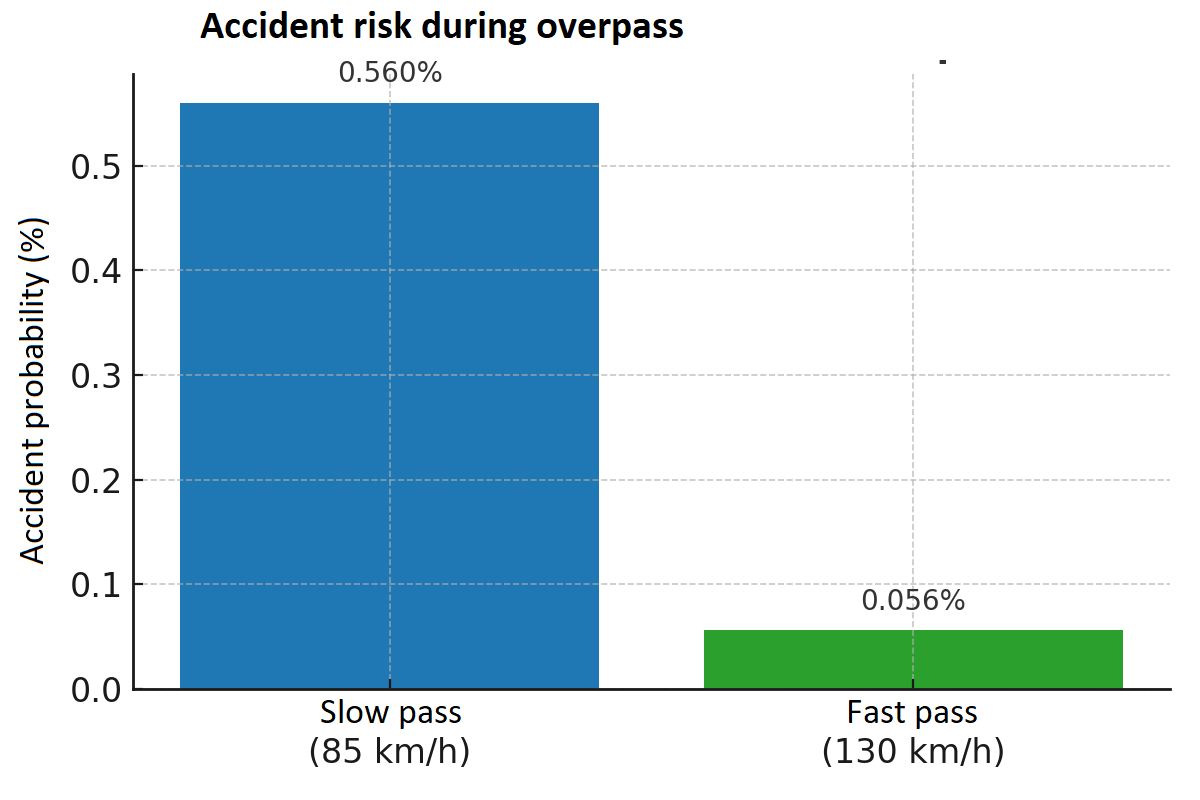Mathematics shows that mindfulness is more important than slowness
In 2024, there were about 12,200 accidents on Italian motorways. An important number, which leads us to reflect on how we drive and on what habits may increase risks.
Surprisingly, mathematics can help us to better understand some of the dynamics of the road. A concrete example? Overtaking heavy vehicles.
The Poisson distribution: when the case becomes calculable
Traffic accidents are random and relatively rare when compared to the enormous number of vehicles and kilometers traveled every day. For this reason, they can be described by a statistical model known as the Poisson distribution.
In simple words, the Poisson distribution is used to estimate the probability that a rare event will occur in a certain interval of time (or space), if we know the average frequency with which it occurs. It is used in very different fields: from earthquakes, to calls received from a call center, to accidents on the highway.
The formula that describes it allows us, for example, to calculate the probability that at least one accident will occur in the few seconds that we are left next to a truck during an overtaking.
Hypothesis 1: slow overtaking
A car moving at 85 km/h and overtaking a truck traveling at 80 km/h takes more than 14 seconds to complete the maneuver.
In this case, the probability that an accident will occur during that time is approximately 0.56%.

Hypothesis 2: rapid overtaking
If, on the other hand, the same car were traveling at 130 km/h, the overtaking would end in just 1.4 seconds. The probability of an accident, in the same time interval, would drop dramatically to 0.056%.

The message we get out of it
The numbers are clear: a slow overtaking increases exposure to risk by up to ten times. This does not mean that you have to run indiscriminately, but that the maneuver must be done decisively, safely and consciously, to reduce the time spent alongside the truck.
True safe driving
The problem is not the speed itself, but the lack of attention and the lack of compliance with the rules. The most serious mistakes on the highway are:
- starting an overtaking without checking who is arriving, forcing others to brake;
- not returning to their lane after overtaking, blocking the flow of traffic;
- maintaining an uncertain side with a heavy vehicle for a long time.
If everyone respected the highway code, kept their vehicles in perfect condition and regulated their speed not on personal selfishness but on real traffic conditions, highways would be smoother and safer, even at relatively high speeds.
Security, after all, does not coincide with slowness, but is best achieved through awareness, attention and mutual respect.
